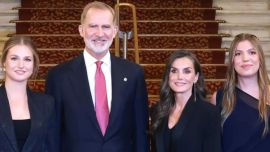Leading constitutional experts in Argentina have condemned Javier Milei’s economic and labour reform package, branding “unconstitutional” the libertarian leader’s attempts to introduce sweeping changes via presidential decree.
The emergency decree announced by President Milei via nationwide broadcast on Wednesday evening and published the next day in the Official Gazette triggered strong reactions. Criticism centred on the move implying an advance of the Executive Branch on parliamentary prerogatives.
The decree has over 300 reforms although President Milei singled out 30 as the main ones.
The emergency decree repeals the Rent Law, the Anti-Hoarding Law and legislation dictating a balanced display of brands on supermarket shelves and the “compre nacional” law giving priority to Argentine products for state purchases. While scrapping industrial and commercial promotion, it also repeals the norm banning the privatisation of public enterprises, as well as “modernising” labour legislation and reforming the Customs Code.
"Article 99, clause 3 of the Constitution establishes as a rule that the Executive Branch may not legislate … with emergency decrees an exception subject to rules," explained Andrés Gil Domínguez, one of the best-known lawyers, via the social networks.
"Repealing or amending 300 laws via an emergency decree is a bid to concentrate public power vetoed by Article 29 of the Constitution … the extinction of Congress as the heart of democracy," said Gil Domínguez, concluding: "These are times for prudence, strategy and constitutional resistance."
Another constitutional lawyer, Raúl Ferreyra, adopted a similar stance.
"The decree is openly unconstitutional since the urgency is nonexistent. Anything permanent has to be amended by Congress. This is an open violation of the separation of powers and the self-attribution of extraordinary powers … something never seen in 40 years of democracy," he told Radio 10 on Thursday morning..
"The law to control emergency decrees sucks. None of the 900 sent to Congress have ever been rejected," he complained.
One of the most recent opinions came from constitutional law professor Daniel Sabsay, who told the La Nación newspaper that the emergency decree is unconstitutional and "insane."
"The exceptional circumstances required by the Constitution for an emergency decree do not exist. I don’t remember anything like it, neither in the times of [Carlos] Menem, nor under a military government," he assured.
Despite their alignment with the Juntos por el Cambio coalition that is expected to back Milei’s reforms in Congress, Unión Cívica Radical Senator Martín Lousteau and former Buenos Aires City mayor Horacio Rodríguez Laretta added their voice to the criticism.
“Argentina needs reforms but not by decree. The instrument for this to happen is a law of Congress,” said Rodríguez Larreta in a social media post entitled ‘Not this way.’
“We have to prevent another president, with a similar DNU, from being able to reverse everything in four years. The separation of powers is the centrepiece of our democracy,” he added.
Ex-government officials also came out to slam the reform bid, focussing especially on the use of emergency decrees.
Vilmar Ibarra, Legal & Technical secretary to the Presidency during Alberto Fernández's government, issued strident criticism, warning that Milei’s actions are a clear "violation of the division of powers."
In a long thread of messages on the social network X, she described the measures as “authoritarian” and questioned if the decrees were drafted by private law firms, which is prohibited.
“Everything points to the fact that this mega-urgent decree may have been prepared by private law firms … Who has prepared this decree? Who is paying them? Because, as President Javier Milei says, nothing comes for free,” she wrote. “This may be a criminal corruption case.”
Ibarra, a former senator and deputy who has years of experience in writing government legislation and left office just 10 days ago, also questioned whether Milei's reform package is constitutional.
“The Constitution authorises urgent decrees under exceptional circumstances. If an urgent decree repeals 300 laws and amends others the Executive Branch is claiming prohibited legislative powers, it is an encroachment on the separation of powers,” she wrote.
Ibarra questioned if the decree had been properly drafted and studied by the Legal and Technical Secretariat.
“If the announced mega-decree is issued, it will be an unconstitutional, anti-republican decision, which starts a path of authoritarianism which ought to cause great alarm,” she concluded.
Those allegations were rejected by those involved in authoring the decree. Seeking to explain the government’s thinking, presidential advisor Federico Sturzenegger said that the idea was to “give an image of regime change.”
Milei “has to give a quick signal,” he argued in a radio interview, adding that it was just “a slice of the reforms the president wants to make."
“We will see if the castes are willing to make their privileges explicit,” said Sturzenegger, who served as Central Bank governor from 2015 to 2018 and as a national deputy between 2013 and 2015.
Mocking those who demonstrated on the streets of Buenos Aires to show their opposition to the measures, the economist quipped: “I was shocked at how quickly they read the DNU.”
The top measures had already been outlined by Milei in his speech on Wednesday night. Acknowledging the sheer number of reforms in his decree, the president highlighted the ‘top 30’ headline changes he is seeking.
– TIMES/PERFIL


























Comments